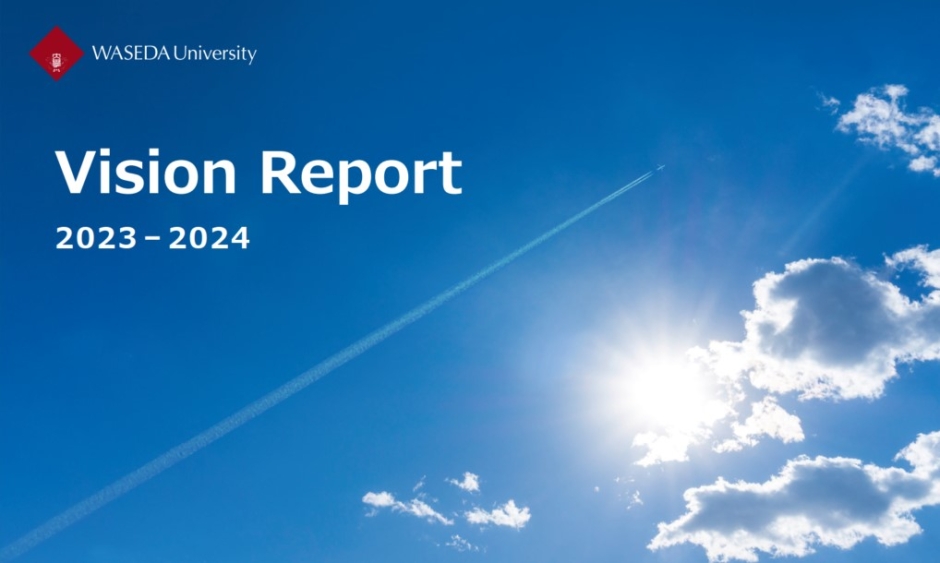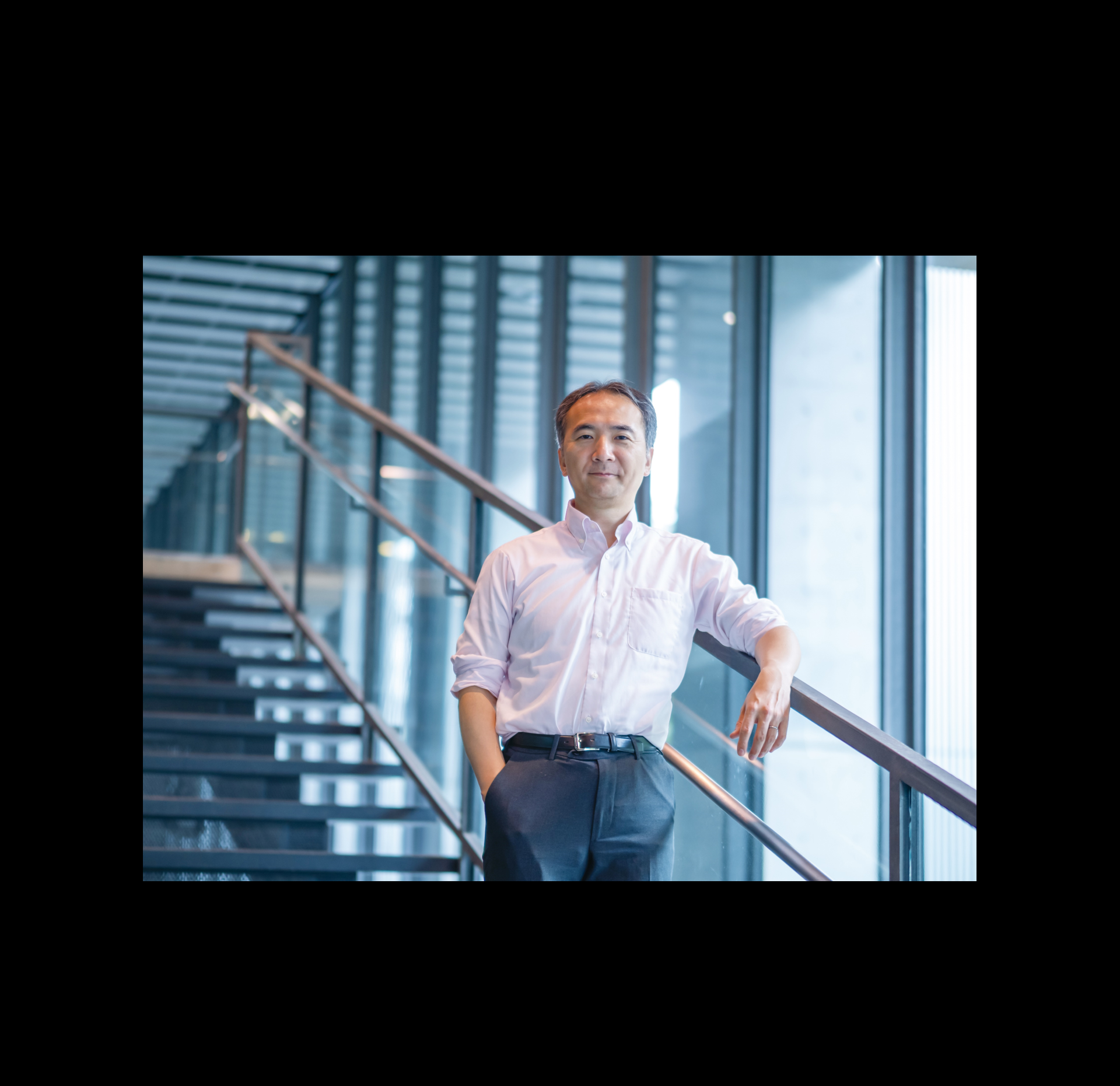- Featured Article
Creation of Frameworks that Increase the Reliability of AI Systems– Prof. Hironori Washizaki
Integrated Report - Vision Report- 2023-2024
Thu 15 May 25
Integrated Report - Vision Report- 2023-2024
Thu 15 May 25
Creation of Frameworks that Increase the Reliability of AI Systems
―Professor Hironori Washizaki
Faculty of Science and Engineering, School of Fundamental Science and Engineering
Waseda University’s academic research and education contribute to humanity. A wide range of activities at Waseda contribute to this, including advanced, original research that impacts the world and university-wide educational activities that transcend the boundaries of the humanities and sciences, alongside the day-to-day challenges undertaken by students both on and off the campus. Below there is information on some of the activities and outcomes that have a particularly significant social impact.
(This article is reprinted from Integrated Report – Vision Report – 2023-2024)
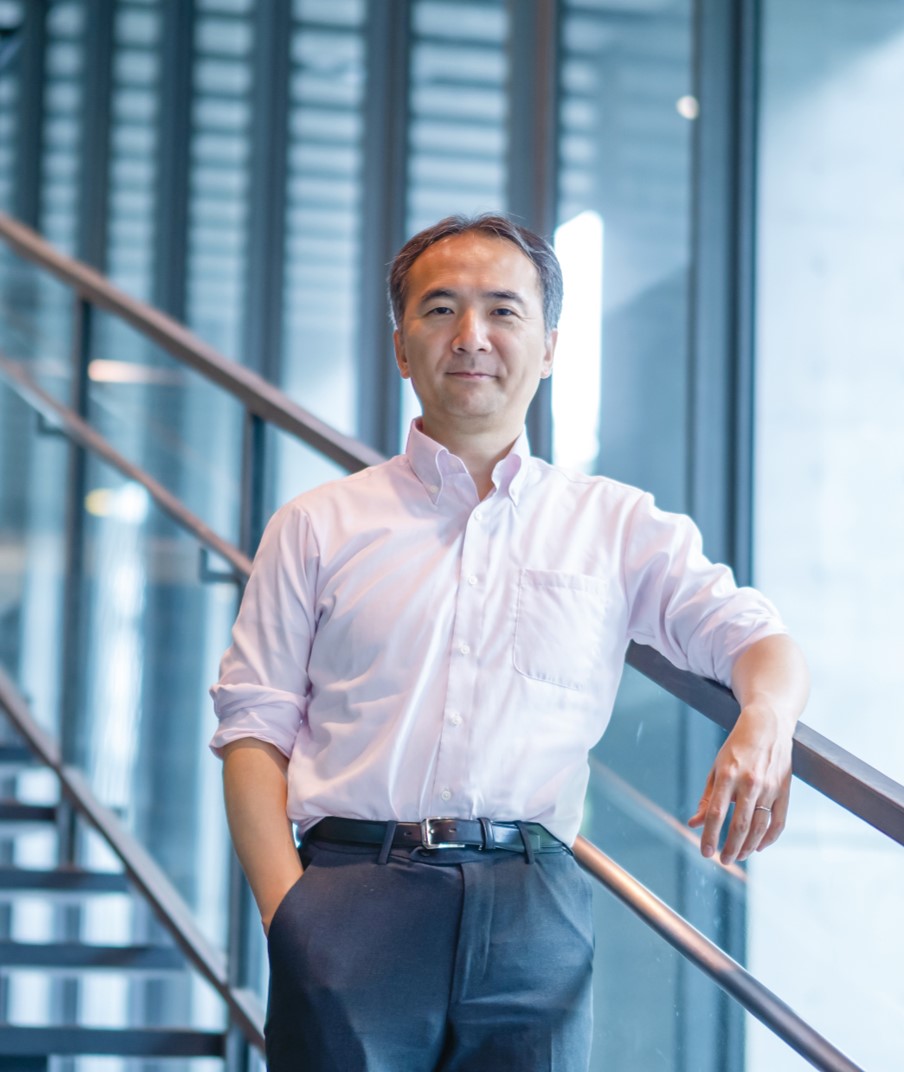
Hironori Washizaki
Professor at the Faculty of Science and Engineering, School of Fundamental Science and Engineering
How can we guarantee the quality of AI systems despite inherent uncertainties?
We are researching engineering to develop and operate software systems efficiently and reliably. This research has three main pillars, one of which is increasing efficiency in the development of software using AI and data. The second is quality assurance in software systems using AI as a platform, and the third is cultivating people of high aptitude. Our project is supported by the program that develops core researchers for the next generation and places a particular emphasis on the second pillar – quality assurance – and links the other pillars with results while promoting research in collaboration with companies and other universities.
One example of industry-academia collaboration is a development project targeting personal mobility, which is currently the focus of business creation activities at Aisin Corporation, a major auto parts manufacturer, based on the JST-Mirai Program. Our laboratory is responsible for the quality of automatic driving AI systems, and we have begun running tests inside of the University using actual units provided by Aisin.
In principle, AI can never be 100% correct. AI stochastically analyzes and predicts a variety of unknown conditions, and its operations are nondeterministic; for example, even with the same input, behaviors may differ. There are some systems where failure resulting from the uncertainty of AI is not an option, as in the case for driverless vehicles. How should we set and guarantee quality standards so that AI systems are accepted by people and society? Evaluation and improvement of AI quality tends to rely on trial and error, but can we approach this systematically, with a firm foundation, rather than doing it haphazardly? We are currently working together to build a framework for this kind of quality evaluation.
Transparency leads to a future where AI can be trusted by society.
If we can establish a framework for quality evaluations, then I believe that we can achieve the broad implementation of software systems that incorporate autonomous control operations using AI in things such as self-driving cars and drones. The key point in the frameworks that we are working on is to have a history of details that will enable later verification, including the process for improvements during those operations, rather than just the results of quality evaluations. This prevents AI systems from becoming a black box and contributes to a future where AI is better trusted and accepted by society. In the future, AI system development and quality assurance itself will more than likely be handled by AI.
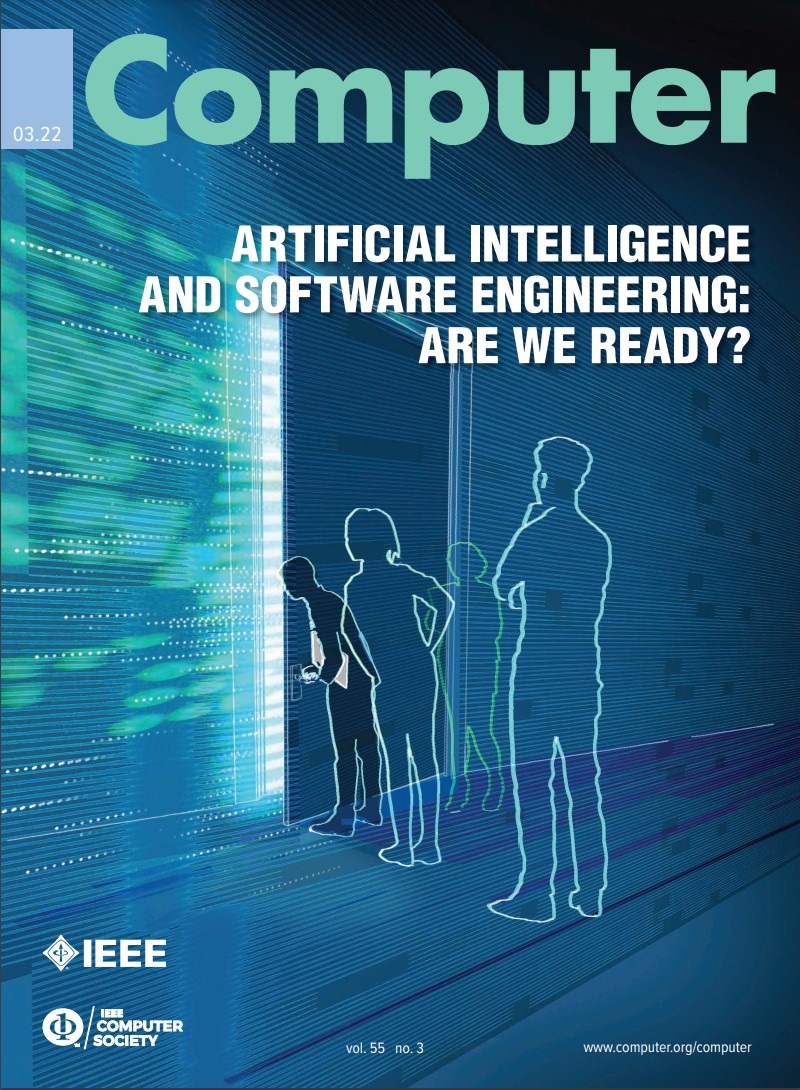
On the other hand, no matter how much AI evolves, human beings drive the academic fields of system development and software engineering, so the education of next-generation engineers and the systematization of knowledge is extremely important. This is why we have specified cultivating people of high-aptitude as one of the three pillars, and why we are promoting programming education for young people and recurrent education for adults in the AI and IoT fields. The systemization of knowledge, meanwhile, must be promoted based on international standards rather than by a single organization. For example, the IEEE Computer Society is working on the Guide to the Software Engineering Body of Knowledge (SWEBOK Guide). I have been appointed Chairperson of the IEEE Computer Society starting in 2025, and it is my intention to strengthen these kinds of international cooperation, while at the same time further accelerating human development and the systemization of knowledge.
鷲崎 弘宜 WASHIZAKI Hironori
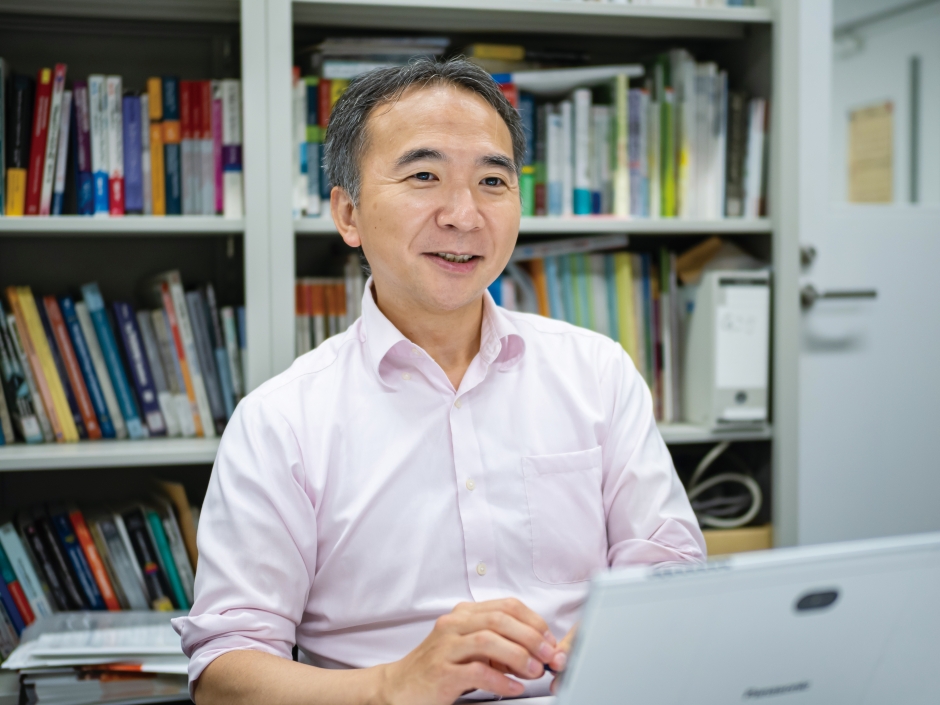
Hironori Washizaki is head of and professor at Global Software Engineering Laboratory, Waseda University, Japan. He also works at National Institute of Informatics as visiting professor, at SYSTEM INFORMATION CO.,LTD. as outside director, and at eXmotion Co., Ltd. as outside director. He obtained his Doctor’s degree in Information and Computer Science from Waseda University in 2003. His research interests include software modeling, product line, and quality assurance. He has published more than 50 research papers in refereed international journals and conferences. He received JSSST Encouraging Award 2004, IPSJ/SES2006 Best Paper Award, IPSJ Research Award 2008, Funai Information Science Encouraging Award 2008, Zengo Award 2009, FIT2009 Best Paper Award, IWESEP 2014 Best Poster Award, and 2016 APSCIT Computer Research Contribution Award. He has served as a workshop co-chair of ASE’06, publicity chair of APSEC’07, ASE’12, CSEE&T’15 and BICT 2015, Asia liaison of SEKE’10-15, program chair of SPAQu’07-09 and AsisanPLoP’10, general chair of AsianPLoP’11, 14-15, organizer of MAPLE/SCALE’13, local chair of SPLC’13.
He has also served as a member of the program committees for many international conferences including ICSE, ASE, ICST, SEKE, ICMT, XP, SAC PSC, SPLC, PROMISE, PROFES, APSEC, JCKBSE, PLoP, AsianPLoP, ICSOFT, DEPEND, ASEA, SecTech, ISA, WorldCIST, Mensura, MODELSWARD, BIST AISE and ICIST ISSEA. He served a member of the editorial boards for several journals including IJSEKE, IEICE, JIP, JSSST Computer Software, IJSEIA, and TOSEJ. He served as the director of ACM-ICPC 2014 Asia Regional Tokyo Contest and secretary of IEEE CS Japan Chapter. He is now chair of IEEE CS Japan Chapter, chair of SEMAT Japan Chapter, director of SamurAI Coding 2014-15 and 2015-16, and Convenor of ISO/IEC/JTC1/SC7/WG20. He is appointed as program co-chair of ICST 2017 in Tokyo and program co-chair of CSEE&T 2017.
More information about researcher: https://w-rdb.waseda.jp/html/100000625_en.html
Providing Optimal Programs Based on the Point in an Individual's Career
Waseda University strategically designs systems aimed at implementing optimum support measures tailored to researcher’s career stages. In recent years, as priority measures, we have planned and operated the following researcher education and support programs.
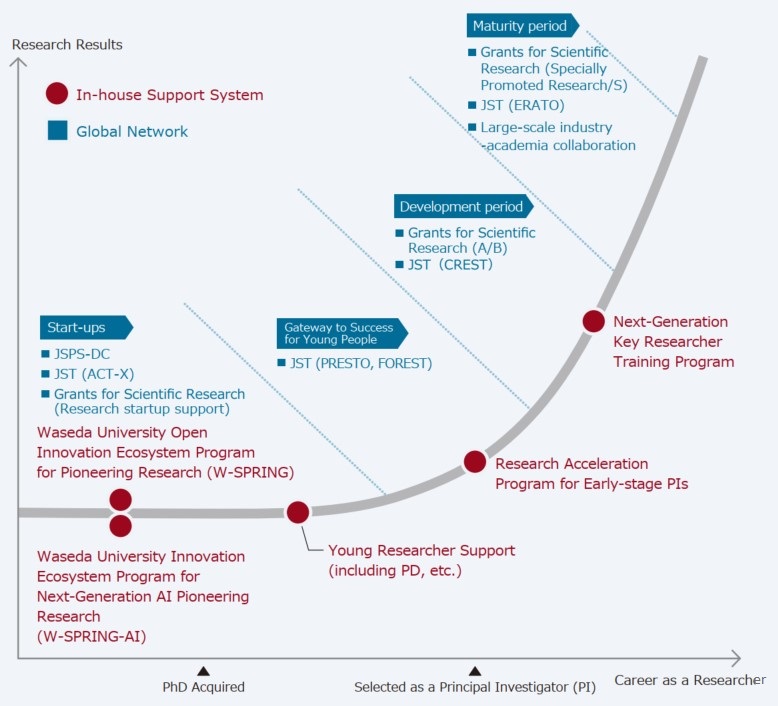
Next-Generation Key Researcher Training Program
With the goal of fostering core researchers who will be responsible for establishing the position as an international research university, this program selects subjects through strict screening based on the performance and content or research and provides adaptable support to meet the specific situation and needs.
Research Acceleration Program for Early-stage PIs
This program supports Principal Investigators (PIs) engage in challenging and original research, as well as supporting their efforts to pioneer original fields of research. IN addition to assistance in research promotion expenses, it offers University-wide backing for global activities as a researcher, through support for a wide range of activities, including expanding research networks, securing large-scale outside capital, industry-academia collaborations, international joint research, and outreach.
Employment support program for young researchers to improve the research environment *1
This program enhances support for young researchers by directly hiring research fellows (PD, PRD, CPD) who did not have an employment relationship, but who are seeking employment, creating an environment in which they can devote themselves to research with peace of mind.
Waseda University Open Innovation Ecosystem Program for Pioneering Research (W-SPRING)*2
This program strives to establish diverse career paths for talented and ambitious doctoral students who will be responsible for Japan’s science and technology innovations by providing economic support, along with career development and educational content and much more, enabling these young researchers to obtain the grounding required to undertake wide-ranging activities in the industrial world.
Waseda University Innovation Ecosystem Program for Next-Generation AI Pioneering Research (W-WPRING-AI)*2
The goal of this program is to foster doctoral students with the skills and determination to seek out and lead in next-generation AI fields designated as national strategic fields, by providing economic support and opportunities to acquire research execution skills and advanced specializations related to next-generation AI fields.
*1: Waseda University applied for the Japan Society for the Promotion of Science (JSPS) “Employment support program for young researchers to improve the research environment” in AY 2023 and was registered as an institute introducing an employment system.
*2: Receiving support from the Japan Science and Technology Agency (JST)
Integrated Report – Vision Report – 2023-2024
